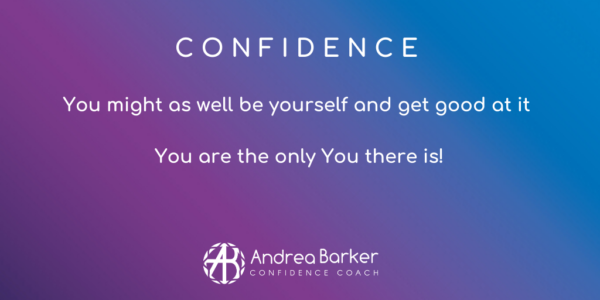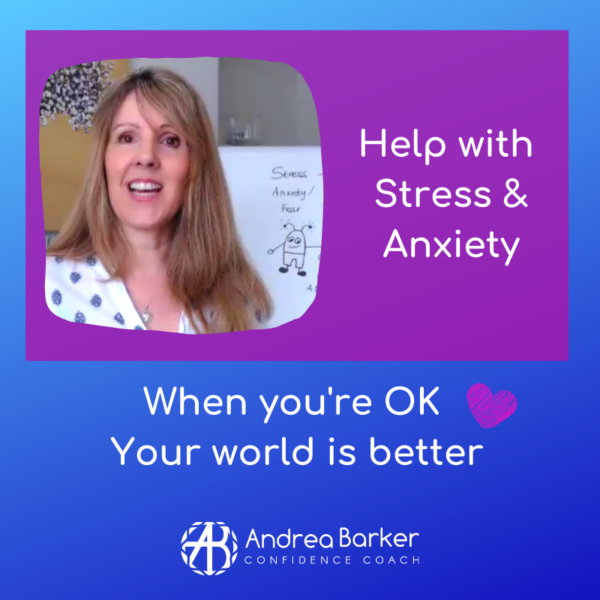Posts Tagged ‘#anxiety #stress #wellbeing #Covid19’
Reboot your Confidence
Many people, older and younger have lost their confidence due to the impact of the pandemic and are now experiencing Social Phobia and Anxiety with being in larger groups of people, like crowded shops or functions, and around returning to school, university or getting back to work.
For some people this is a new feeling and for others it has increased after the comparative safety of lockdown, which has gone on for much longer than any of us could have predicted.
After the 19th July this year, more people feel uncertain about the ‘rules’ or etiquette in social or work situations, creating social awkwardness, worries on what is the right way to act around others and feeling unsure about themselves.
For many there is still that wariness around Covid19 and that we are not out of the woods yet!

So, what to do to Reboot your Confidence?
…and to also reduce Social Phobia and Anxiety
Firstly, be kind to yourself and others around you and appreciate you may be a bit out of practice in face-to-face socialising or working and so are other people – which also means they are generally focusing on themselves, not you! Once you have socilaised a few times you will start to feel more at ease.
Talk to others you trust about how you feel – you will be surprised that many people do have similar feelings and opening up is a great way of getting the worries out and feeling better and by having the courage to speak about how you feel could also help someone else who is struggling.
Step by little step – ease yourself into social situations by starting with small gatherings and with work, do speak to your employer and agree to take regular breaks. Most people and organisations do have a greater understanding and will focus on being more aware of mental health and giving support.

For school or University
*young children – the teachers and parents can work together – communication is key on both sides and reassuring the child that you are there for them – maybe they can take in a toy that helps give them reassurance.
*Older children and University students – again, it is about talking about your worries and agreeing a strategy if you are really struggling. Maybe take something like a tactile keyring or pen you like or wear a favourite colour of clothing that helps you feel some comfort and therefore more secure.
*Buddy up with someone and do things together until you both feel comfortable again – which you will.
Fear of doing something can feel big – until you do it
The fear of doing something is always bigger than once you have done it – once day 1 is over you can breathe easier, and you may even then think ‘well that wasn’t so bad’ or ‘what was I worried about?’
*Remember to then give yourself a pat on the back!
Focus on the things that did go well, and if it works for you – write them down – it helps your mind to focus on what was positive out of the day or experience.
**If you feel you can’t talk to people around you, then the 24/7 text service that SHOUT 85258 offers is a great way to get some support.
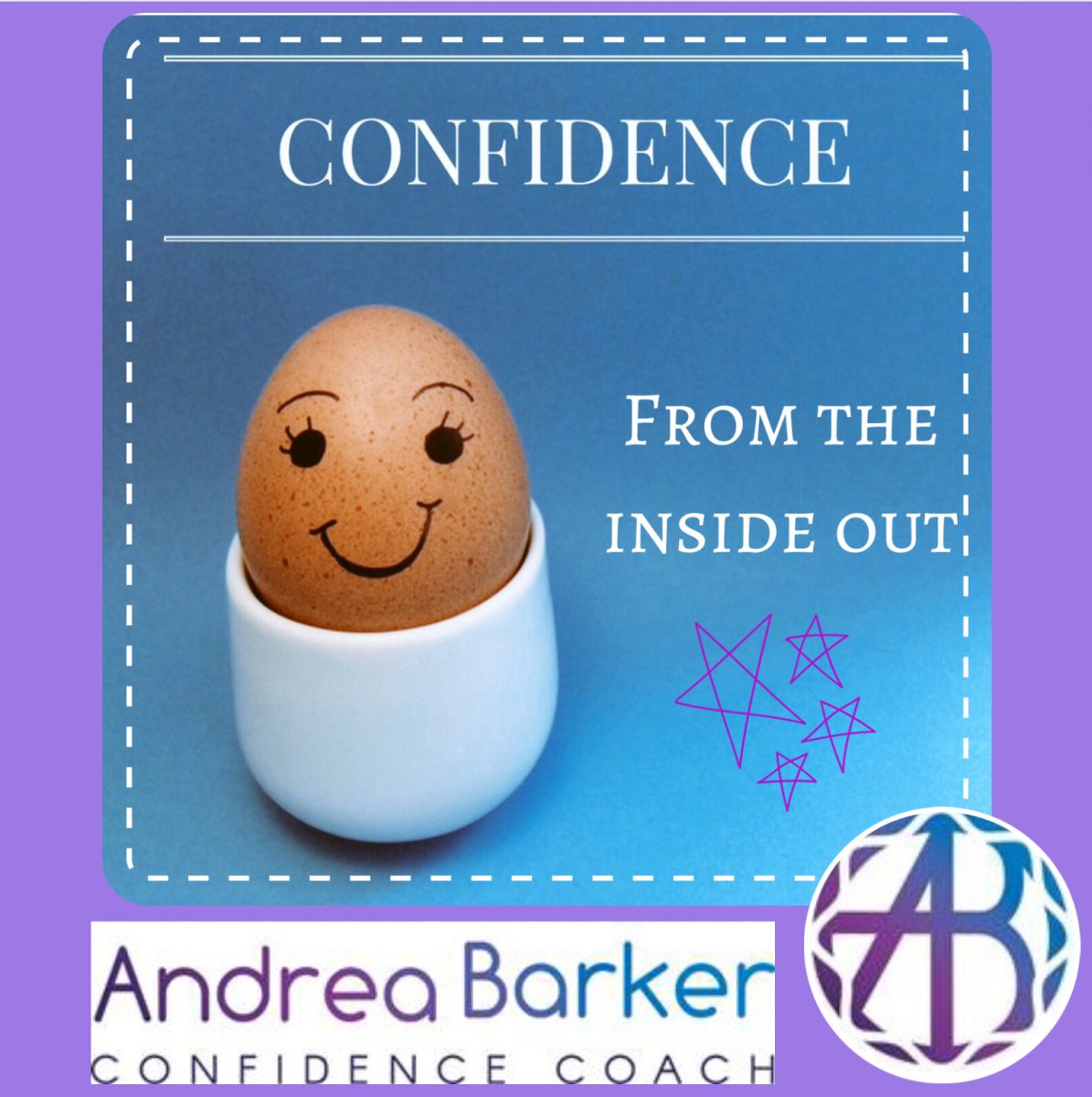
You can also use ‘visualisation’ – this is using your wonderful and powerful imagination to literally imagine your day going well. Just before you go to sleep, with your eyes closed, see yourself – like in a film or dream – having a good day and smiling – it works. Athletes use visualisation to imagine themselves winning and practice their skills – if you have ever heard an Olympian receive a Gold medal – they say I have dreamt of this moment many times over. If you think you can’t do this – well think again! Anxiety is imagination on overdrive – imagining things going wrong – so with visualisation you purposefully imagine things going well.
Also, I have talked before about pressing, tapping or rubbing below your collar bone if you are feeling anxious about a situation and thinking of someone or something or someone that makes you smile, then imagine your favourite colour and tell yourself ‘I’m OK – I’ve got this’
You’ll be fine by being kind to yourself and trusting that you do know what to do.
Andrea
Ways to cope with Anxiety and Stress during Lockdown
As we head into our second lockdown, how can we reduce anxiety and stress?
A return to restrictions and lockdown has seen Anxiety levels soar again, in all ages.
It has been a year that has touched everyone in some way. One we certainly won’t forget.
Continued uncertainty and not being able to plan for the future, can give the feeling being anxious, stressed and not being in control. We are left wondering when ‘normality’ will return.
This can also create stress and overwhelm, as our mind becomes hypersensitive to the continued threat to our well-being and fears go into overdrive.
As the weather changes too, how can we manage our anxiety, or help those close to us?

Following on from being on Pat Marsh’s show, on BBC Radio Kent – I have listed the advice spoken about and more…
Focus on what YOU can control
Like your getting up time, when you have lunch or some exercise, whether indoors or outdoors.
A routine is a great thing to have in the week, especially if you are not able to continue your normal routine, to give you structure. Relax at the weekend. This will help you feel less anxious to keep the days of the week and the weekend seperate.
Also, Stick to a good bedtime, to get important sleep you need. Waking up refreshed is so much better for you and will help you cope better day to day. Our body repairs and our mind helps file away our day.
If you wake up in the night – listen to the calm silence and then task your mind to count down from 300 – gently keep bring your mind back to the countdown and you will go back to sleep. It is a good idea not to turn on phone screens if you wake up, because the light affects your sleep hormone, which promotes sleep.
Stay connected in whatever way you can with family and friends. This is the time to keep talking. Talking to friends and family about how you feel, or listening to others, can really help.
Pick up the phone and have conversations. Check on your neighbours. You can meet one other person for a walk, so even if it is meeting for just a half hour walk, it is well worth doing. Wrap up if it is cold and prepare to be invigorated!
If you feel anxious and like thoughts are whirring around your head – get a plain piece of paper and write everything down – then rip it up. It feels good.
Try to limit the news to once a day, just so you can keep in touch with what is happening that may affect you, then concentrate on what you can control within your own environment – whilst following the guidelines.
Other things you can try:
- Join virtual group or create one – like a model club, knitting, photography… there are other things too, if you are not wanting to use a device or computer.
- Have quiet time and read, colour, draw or paint and do crafts, or a jigsaw
- Try calming mindfulness – focus on your breathing and think of things that make you smile and feel happy
- Make a calming glitter jar – literally fill an empty jar with water and glitter – seal and enjoy its calming affects
- Get a stress ball – or something lovely and touchy-feely for when you feel anxious and stressed or pop bubble wrap!
- Listen to music, sing out loud and dance – music has wonderful power to uplift you and change your mood instantly and it lasts
- Watch things that make you Laugh, laughing really is a tonic.
So, give a few things a good and you will feel better
Feeling panicky?
If you are feeling panicky:
- Breathe – breathe in for the count of 3, hold for 3, breathe out to the count of 3 and hold for 3 – do this three times and you will feel calmer
- Tell yourself ‘I’m OK, I am calm’
- This could be useful to try: Focus on 5 things you can see, 4 things you can hear (even if you create the noise) 3 things you can touch. This grounds you and helps you feel calmer.
Really not feeling yourself?
We can all be feeling anxious and stressed, but if it is taking over your day to day living, affecting your sleep and eating habits, then do seek help from your GP, and the many organisations available to get the support you need.
You are not alone: 1 in 4 people suffer anxiety.
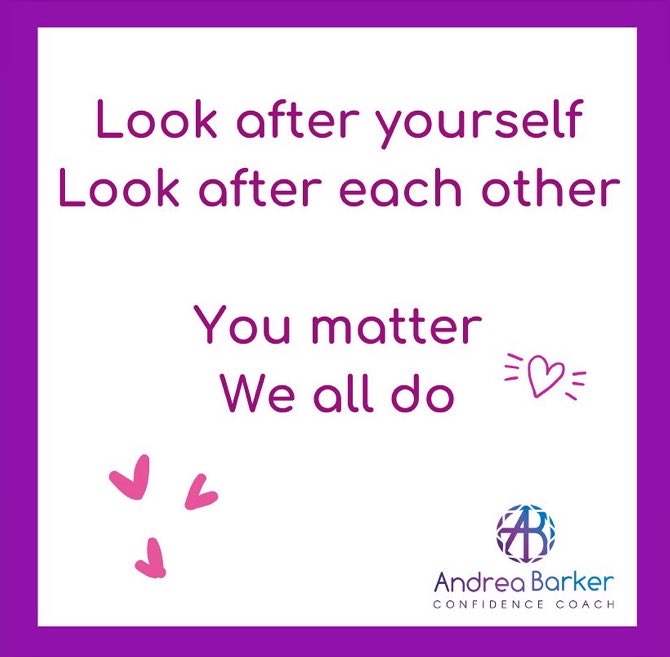
Andrea
How to manage Anxiety and Stress
Look for positives, to reduce Anxiety & Stress to help your Wellbeing
We are in uncertain, challenging unchartered waters for sure, and as I see it there are certain facts that could offer some comfort:
We are all in this together, Covid19 the most micro of micro-critters has united us all!
*The only sure thing is that it will pass, and like a hurricane rips through an area and leaves devastation, we will rebuild, recover and move on. Humans are immensely resilient.
*Times like this reveal a sense of community, connecting with people in your street and many acts of kindness, and heart-warming stories.
This is a huge opportunity for reflection and to re-evaluate how we live, what’s important to us and to be valued and how we do business. For example, as human activity has ceased across the world, wildlife has flourished!
From adversity can come amazing creativity and inventiveness, with new and exciting ways to do things and of course, in the right context – humour, which we may need more than ever. You can’t underestimate the power of laughter
Some people will be having unscheduled unique time with family, young children especially will relish having family at home.
*On that note, do spare a thought for those key workers, working around the clock to keep things going and looking after those who are ill and vulnerable, and those people living alone.
Anxiety and Stress
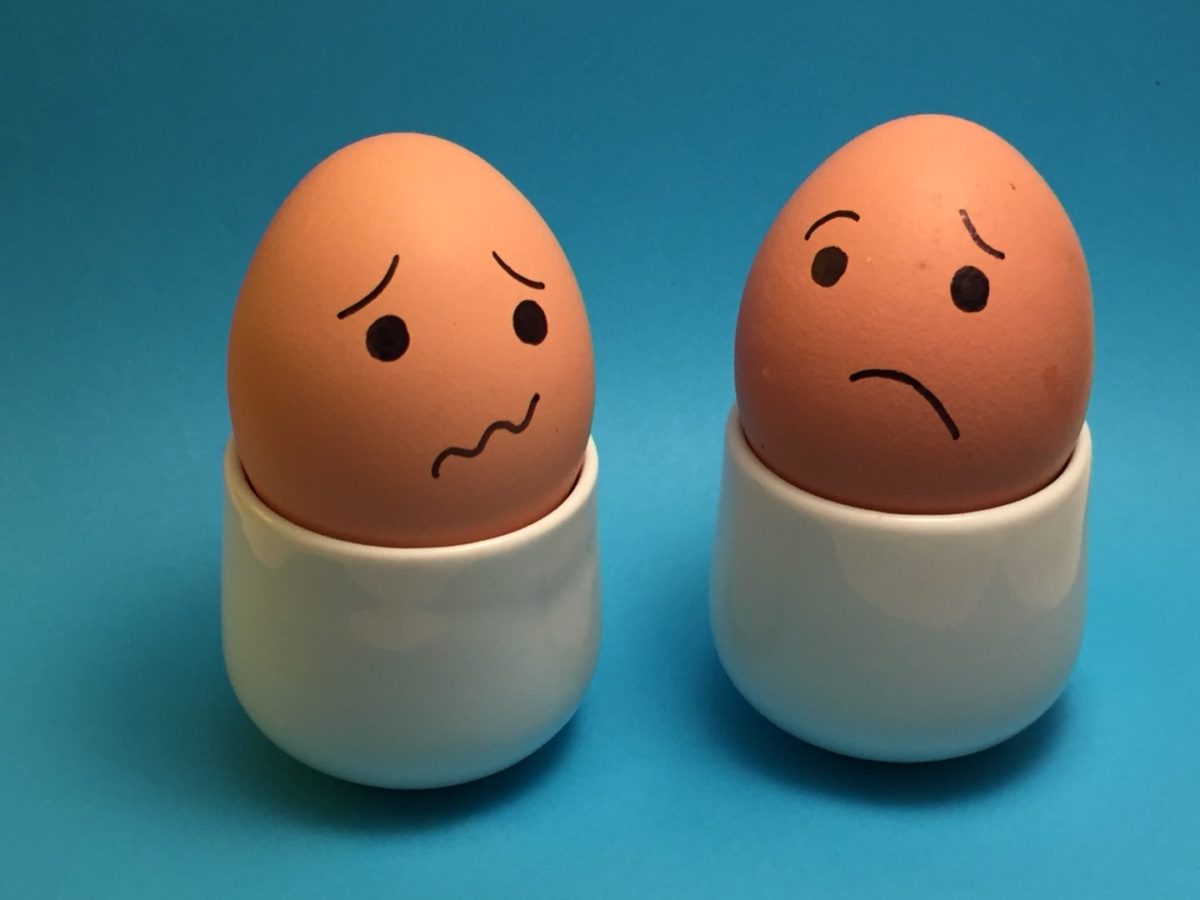
If you are feeling anxious, stressed, worried, uncertain or frightened at the moment, or anxiety levels are worse than normal, you are definitely not alone.
It is OK to not feel OK, to feel the way you are feeling, most especially in such unprecedented times and especially as currently we have no end date to the pandemic.
What is important is how you deal with how you are feeling, to reduce stress and anxiety in the best way possible for you, and to improve your overall wellbeing and to take things day by day. *There are links at the end of the article
Stress is a normal reaction to feeling threatened and under pressure, it propels us into action, so we can get things done and find solutions.
Undue and prolonged stress, with no solutions being found, compromises our health. It is important to find ways to ‘destress’ and task or time manage in a different way.
Anxiety is a natural response to protect us from threats to our safety, and keeps us safe.
Our body reacts to get us ready to respond and Fight Fright (freeze) or Flight (run).
Which can make our heart pound in our chest and beat much faster, making our breathing quicker. We can also feel sick and sweaty too.
When we are worried that something might happen or happen again (if we have had a negative experience) or have feelings of uncertainty and feeling like we have lost control, our body will respond in the same way to the possible threat, as though it was a real threat. We can then feel anxious as our heart pounds… which leaves us feeling worried, anxious, uncertain and out of control. When this keeps happening, we are then said to be ‘suffering with anxiety’ and then the Flight or ‘run’ response can turn into ‘avoid altogether’
To reassure anyone who feels like this, you are not doing this on purpose, but the important thing now is what to do about it.
During these times of real uncertainty, here are some tips and advice for you:

*Firstly, your feelings do matter, and if you are really struggling, with self-isolating and social distancing, then do reach out to others. Acknowledge how you feel and try some of the tips to follow and use the links or numbers at the end of this article.
*Concentrate on what you CAN control, day to day, and literally ground yourself in each day, and deal with what you can do. Covid19 itself is out of your control. All we can do is put the measures in place to try the best we can to limit the effects, protect the most vulnerable and prevent a sharp peak. Most people will suffer mild symptoms.
*If your anxiety soars and you feel like you are panicking, tap several times below your collarbone, relatively hard and sing a nursery rhyme and tell yourself ‘I am OK’ Go back to the things you are in control of, even if this means cleaning out a cupboard, going for a walk around the block or turning up the music.
lots of other things you can do
*Stay connected with friends, family and colleagues, school, college or Uni friends – ringing or video calling is great, to really feel connected. Ring someone you haven’t spoken to in a while or send an uplifting card. Try and get into the fresh air, maintaining a safe distance with anyone you might meet, and no hugging, shaking hands or sharing personal items – this will change once time has passed, it is in place to protect those people in society that are the most vulnerable to being seriously ill due to Covid19, that may not be you, but we are in this together, to protect each other.
*Help or connect with someone in your neighbourhood that could be isolated, go about this safely and wisely and never put yourself at risk – there are some good groups already to be a part of. *Do authenticate any group.*
*Join supportive practical uplifting groups through social media or set up your own ‘virtual’ meet-up over coffee, or just to chat.
*It is best to stick to the facts we have right now. Only update these facts from absolute reliable sources. So, avoid the scaremongering on social media, with people’s opinions that can be skewed and limit your time on various platforms, unless supportive. Try to limit the news to once or twice a day and screen time overall.
What about work?
*For business or finance matters Gov.uk, local authorities and councils will have details, as will great organisations like FSB, Chamber of commerce and other local business networking connections and your bank. Do remember, things are changing daily, but will come clearer. This is very new for all of us. Things will become clearer.
*Have a routine – I can’t recommend this highly enough, most especially for those people not used to working from home or being at home with no work or school to go to presently. Stick to schedule of when you get up, have breakfast, exercise, do work, connect with people in whatever way you can, and go to bed. This schedule doesn’t have to be strict, so allow some flexibility and time to relax.
*For those of you who are homeworking, and worried about your businesses and jobs. Do keep an eye on what is available for you, as mentioned above. Think of ways you can stay in touch with your clients / audience. Can you write a blog, do a video to give tips to others or create things for people to participate in online in real time? This is where as businesses we may have to think of different ways to operate and diversify part of how or what we deliver. You may now have the time to learn a new skill.
look after your health
Physical health
*Get plenty of sleep – Sleep is essential to your overall wellbeing. Have a night-time, wind-down routine. Limit screen time, have a warm bath, adding lavender can help, as can having a warm milky drink, limit alcohol and caffeine. Try to keep your bedroom cool and well ventilated to promote a good sleep. If you struggle to sleep or wake up – don’t look at the time if possible, take slow breaths and start counting down from 300 slowly and keep bringing your mind back to the numbers – you will soon drop off again.
*Stay nourished and hydrated drink plenty of water, it keeps your mind clear and helps clear toxins from your body. During these times we are all more aware of food availability, which is not a bad thing, eat a varied diet and food that fills you up properly, so you avoid the need to snack, and if you do snack try to choose the healthier options you have available to you, as this maintains a good sugar level, enhancing mood and promoting a healthy immune system, which helps us to fight illness.
Exercise in whatever way you can; take a walk in the fresh air – nature is very grounding; it continues regardless and gives us a good sense of things moving forward still and helps balance our mental health. Get in your garden if you have one, do laps, exercise outside, or do some gardening, plant some seeds – something to look forward to, why not grow your own veg? Even if you only have a window ledge you can grow something. Why not dust off the interactive games’ consoles! Do yoga or pilates, or dance and move to music. Look out for the many people offering great workout videos on-line, start locally first – to help you keep connected with people in your local area.
Mental health
*Practice mindfulness and relaxation – great for reducing stress and anxiety. Controlling your breath is very calming and helps reduce anxiety – take in a deep slow breath for the count of 4, hold for 3, breath out for the count of 4, do two more times – this brings you back to the now. Look out for all the people in your area offering on-line sessions to follow. Like the exercise above, most people are doing this for free and there are also special workouts for children too. Give yourself distraction free time to relax. There are great Apps too.
*Take Time Out recognise when you, or the people you are with need quiet time, and ‘time out’ – you don’t need to schedule your every moment, or entertain children constantly, and it is more than ok during these times of isolation to have guilt free time to watch films, binge on a series, read a book, take a nap…and just have some quiet.
*Music is a powerful uplifting mood changer and helps us to be creative and gets us moving. Get those tunes on, children love to dance and sing. How about pulling out archived music! Many DJ’s around the country are doing live ‘club’ sessions for people to join in on during these times of social distancing.
What else can you do?
*Do puzzles, a jigsaw, pull out the lego, play games, knit, sew, paint, decorate, de-clutter, try a new recipe, bake, feed the birds or learn something new. Watch comedy and do try to have some laughter and fun.
*Finish that task you’ve been meaning to do! We all have something that has been put to one side, for when we have the time!
*Practice GRATITUDE – 3 good things a day – especially when you feel worried or uncertain, you may not feel like doing this, however this really grounds you in the now, and helps you to look around at what you do have, who you appreciate, maybe the new connections you’ve made, the birds singing, the quiet. Remember good things will also come out of this crisis, and gratitude helps you through tough times, and loss, as you reflect on happy memories, or things that have made you smile and laugh today. You can do this with children too – maybe get them to write down things on strips of paper and put them in a jar, to read at a later date.
*write down negative or angry thoughts that whizz around your head, then delight in ripping them up or shredding them – this is a powerful exercise to get thoughts out of your head without hurting anyone.
I really hope this has been of help to you.
Above all – do get the support you need if you feel particularly anxious, stay connected with friends and family – or reach out to organisations that can help.
Andrea

Extra Help
SAMARITANS free phone – 116 123
SHOUT – there is lots of information here, plus a texting service https://www.giveusashout.org/
ANXIETY UK
Support with Anxiety due to the corona virus https://www.anxietyuk.org.uk/coronanxiety-support-resources/
Help with talking to children about corona virus https://www.anxietyuk.org.uk/blog/how-to-talk-to-children-about-covid-19/
MIND – 5 ways to wellbeing https://www.mind.org.uk/workplace/mental-health-at-work/taking-care-of-yourself/five-ways-to-wellbeing/
CALM – Campaign Against Living Miserably – specially to support Men and run by Men https://www.thecalmzone.net/
I highly recommend Cruse to help with bereavment at anytime, but especially because things have changed in being there for loved ones when they pass and also due to retrictions when it comes to funerals https://www.cruse.org.uk/

